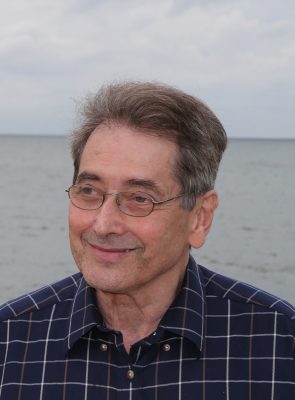Stephen Grossberg, professor of cognitive and neural systems at Boston University, started his life’s work at 17 years old. In 2021, he produced his magnum opus, “Conscious Mind, Resonant Brain: How Each Brain Makes a Mind.”
In nearly 800 pages and over 600 figures, Grossberg explored the interconnected aspects of the human experience, including topics like “perception, cognition, emotion and action in healthy individuals and clinical patients.”
While the length of the book may seem daunting, he designed the book to make his research accessible to all audiences.

“I wrote the book so that … all the chapters are written to be independently readable,” he said. “So you can jump to any chapter that interests you.”
The book’s central theme is brain evolution, Grossberg said, and how “Darwinian natural selection shaped [people’s] brains in order to adapt successfully to challenging, changing environments.”
The book sheds light on how our brains consciously perceive, understand and navigate the world to achieve certain goals. It also explores artificial intelligence and neuroscience, as well as how breakdowns in normal brain processes can lead to maladaptive behaviors.
Though “Conscious Mind, Resonant Brain,” was published in 2021, Grossberg has long been an internationally-recognized pioneer in the field of computational neuroscience, introducing and developing many of the foundational concepts that are used today.
Grossberg founded the Department of Cognitive and Neural Systems at BU with his wife, Gail Carpenter, who was also a professor at BU at the time.
The department came to be internationally recognized for training both Ph.D. students and advanced undergraduates in modeling neural networks, in particular, “linking brain to mind,” Grossberg said.
Grossberg is widely known for his work on Adaptive Resonance Theory, “a cognitive and neural theory of how our brains recognize and predict objects and events in a changing world.”
Shreya Bhattacharya, a researcher in cognitive neuroscience and computational neuroscience, said when she began her research, she read countless papers on consciousness. But none stood out to her like ART. She described it as the “most fantastic, most comprehensive, logical, functional work on human consciousness” she has ever come across.
The beauty of Grossberg’s work, Bhattacharya added, is that he explains biological processes through a framework of neural networks, which “automatically put them into an algorithmic language.”
“Once something is quantified in terms of an algorithm, it becomes testable, verifiable [and] scalable,” she said.
Grossberg even recalls a time, many years ago, when he was approached after a lecture by a man from the National Security Agency who said ART was “protecting the nation.”
He emphasized the importance of using quantitative data and biological models to analyze complex behaviors, filtering out the noise of marketing.
“My real, primal gift is being able to see to the heart of data,” he said.
Luiz Pessoa, a professor of psychology at the University of Maryland, was a doctoral student at BU under Grossberg in the 1990s. He’s read many chapters of the book, and noted that it was great to see the concepts he explored in his Ph.D. research progress in the decades following.
“One of the things that was missing in [Grossberg’s] body of work was perhaps something that reached more of a … broader, technical, academic audience,” Pessoa said. “He was too busy producing the science, but eventually he came to write it and I think it’s really, really wonderful to see it all together.”
Entering the age of AI, society is faced with many “moral and ethical questions,” Bhattacharya said, citing the growing importance of Grossberg’s research.
“[Grossberg’s] work is going to be the most important work along the lines of Newtonian physics when it comes to human consciousness.”

















































































































